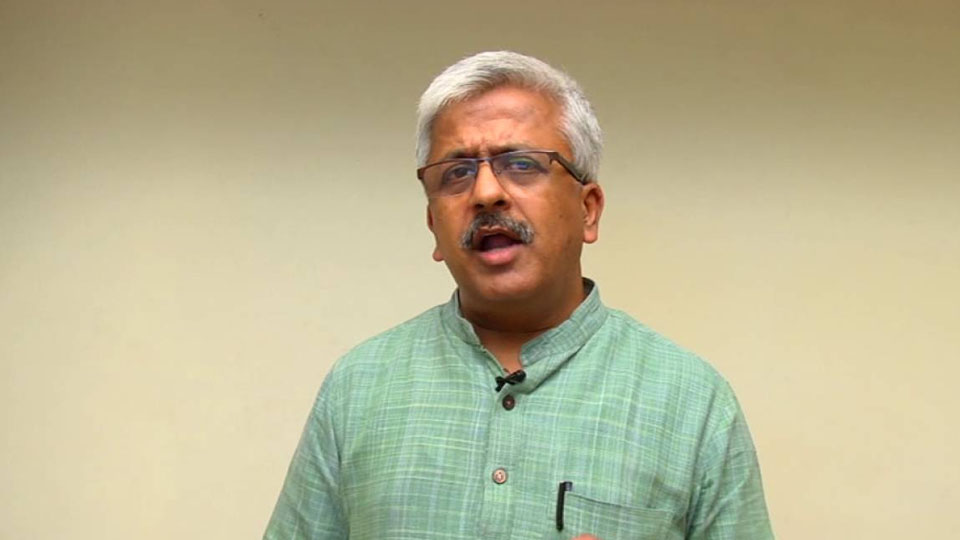By Dr. R. Balasubramaniam
Some 30-odd years ago, as a young doctor setting out to change the world, I was thinking of building a hospital for the tribal communities near Mysuru. I was all of 22 years old and believed a hospital was indeed the solution to address the healthcare needs of the community. So, when a kind person offered a piece of land as a donation to build the hospital, I quickly accepted, despite a close doctor-friend, who was familiar with rural realities, cautioning me that the proposed location was relatively inaccessible and, therefore, unsuitable for a hospital. But I went ahead and built that hospital in the same location. In hindsight, it was not the best decision. The better option would have been to set up mobile clinics that could serve many more people than the hospital ever could. Our impact would have been much greater, had I listened to my friend back then. But I had refused to allow myself to be vulnerable.
Embracing vulnerability as a leadership asset
Having spent the last three decades in the development sector and also teaching and exploring the leadership question, I have no doubt in my mind that the complexities of our world today are so vast and the challenges so humongous that no one person can have all the solutions for everything. However, the common understanding of leadership places the burden of finding a solution on one person — the ‘leader’.
This fundamental flaw in understanding leadership leads to vulnerability being perceived as a weakness; a good leader is expected to be in total control always and have answers to all questions brought to them. Working with this limited and unforgiving understanding of leadership, leaders tend to start believing that they will not be seen as influential enough if they demonstrate vulnerability.
It takes a person of humility and simplicity to admit to not having the solution. In other words, it requires a person to be vulnerable. To be vulnerable is to accept that one does not need to be a leader — one needs to ‘exercise’ leadership. One needs to accept that one may not have the answers that the context demands, but that the answers can be sought from others around you. That act of reaching out and asking for help can be liberating, enriching and empowering.
If Arjuna, greatly admired for his archery and power, had not demonstrated vulnerability and asked himself fundamental questions about his Self and his purpose, there would have been no Bhagavad Gita. By demonstrating vulnerability and admitting that he was troubled and didn’t have the answers needed at that point in time, he opened up an opportunity for conversations to emerge. And the world benefited by this show of vulnerability.
Vulnerability makes you a better leader
Accepting and embracing your vulnerability makes you a more complete, humane and effective leader by enabling you to access some valuable aspects of true leadership.
* It allows you to acquire new competence: Acquiring competence needs a mindset that gives you the permission ‘not to know’. Your vulnerability frees you from the fear of being perceived as lacking in competence and enables you to be a continuous learner. It also encourages others who know how to handle the situation to teach you. Pretending to know can also shut out valuable inputs which may have otherwise been made available.
* It allows you to share the responsibility of finding answers: Being vulnerable allows you to access the knowledge and wisdom of other people by transcending barriers of hierarchies. It builds in you the humility to acknowledge that there are voices out there that are more intelligent than your own.
* It enables you to fail, make wrong choices and flawed decisions: The popular metrics by which we measure success and failure are fundamentally flawed. We are so focused on the end that we don’t focus on the means. Leadership is all about the ‘means’; the process is absolutely critical. Being vulnerable allows you to look at success and failure in a different light. It allows you the latitude to fail and gives you the liberty to make mistakes.
* It gives you courage to stand up for what you believe in: If vulnerability gives you the liberty to fail, it also gives you the strength to try something new and speak up for what you believe in. Paul Polman, the former head of Unilever, to me is an example of this because he had the courage to raise the issue of sustainable practices within his company even when he knew that he would be met with resistance. Organisations where the leadership has courage are the ones that are able to sustain themselves.
* It allows you to ask, seek and partner: Only when you are vulnerable will you understand how to treat the ‘other’. This is a great source of strength when it comes to forming teams and forging alliances. It allows you to transcend your ego and gives you insights into engaging with people who may not necessarily agree with your views.
* It teaches you to listen: Being vulnerable without being judgmental of one’s own vulnerability helps you to genuinely listen to others with the intensity that leadership roles demand.
* It improves your mental well-being: Allowing yourself to be vulnerable also helps you keep better mental health, since you have freed yourself of unrealistic, limiting and conditioned ideas of what leadership entails.
* It makes you an authentic individual: To be able to inspire large numbers of people, those in leadership positions need to see themselves as ordinary and human. Leadership is not something divine that has been bestowed upon you: you can show yourself as human and authentic if you are vulnerable.
* It helps you understand yourself: Vulnerability gives you the capacity to realise your strengths and weaknesses, connecting you to your authentic self and allowing you to accept yourself.
As the world and the workplace change at an unprecedented pace, organisations and leaders will do well to rethink their leadership styles. With uncertainty, inconsistency and unpredictability defining the context within which you function as a leader, building coalitions with the people around you is the only sustainable way forward. And being vulnerable will help you build and inspire stronger teams and demonstrate authentic leadership.[Dr. R. Balasubramaniam, the founder of Swami Vivekananda Youth Movement & GRAAM, teaches leadership at Cornell University and IIT-Delhi. He can be reached at [email protected]]








Recent Comments